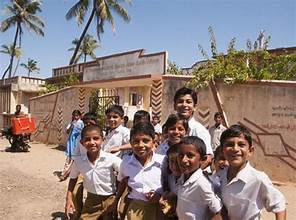
Gujarat schools are facing significant challenges in creating Apaar IDs for students due to discrepancies between students’ Aadhaar card details and online records.
The Apaar ID initiative, part of the Union government’s effort to implement the Automated Permanent Academic Account Registry (Apaar) under the National Education Policy 2020, is encountering roadblocks in Gujarat. This initiative, aimed at maintaining a single student ID for monitoring academic progress, requires linking students’ Aadhaar cards with their online academic records. However, discrepancies between the Aadhaar card names and the names in school records are preventing the successful creation of Apaar IDs.
Key Issues with Apaar ID Generation
Teachers, students, and parents are facing hurdles due to minor name variations and formatting errors between Aadhaar cards and online records. For example, even small discrepancies like spelling differences, missing full names, or issues with birth year vs. birth date entries on Aadhaar cards are causing delays in the Apaar ID process. Additionally, spacing issues, such as double spaces between surnames and first names, further complicate the process.
Teachers are under pressure to resolve these issues swiftly, as officials expect them to complete the Apaar ID assignments within tight deadlines. The education department is currently collecting parental consent and Aadhaar cards to finalize the ID generation process.
Impact on Educational Activities
The Apaar ID rollout has disrupted regular educational activities in Gujarat, with schools facing difficulties in completing essential tasks due to the technical issues. The goal of the One Nation, One Student ID initiative is to create a centralized digital record of students’ academic performance, results, and achievements. However, the ongoing challenges in reconciling data have hampered the smooth implementation of this system.
Conclusion
While the Apaar ID initiative promises long-term benefits for tracking students’ academic progress, name inconsistencies and technical problems are delaying its effective implementation in Gujarat schools. Teachers and school authorities are working hard to resolve these issues, but the disruption continues to affect the smooth functioning of educational activities.